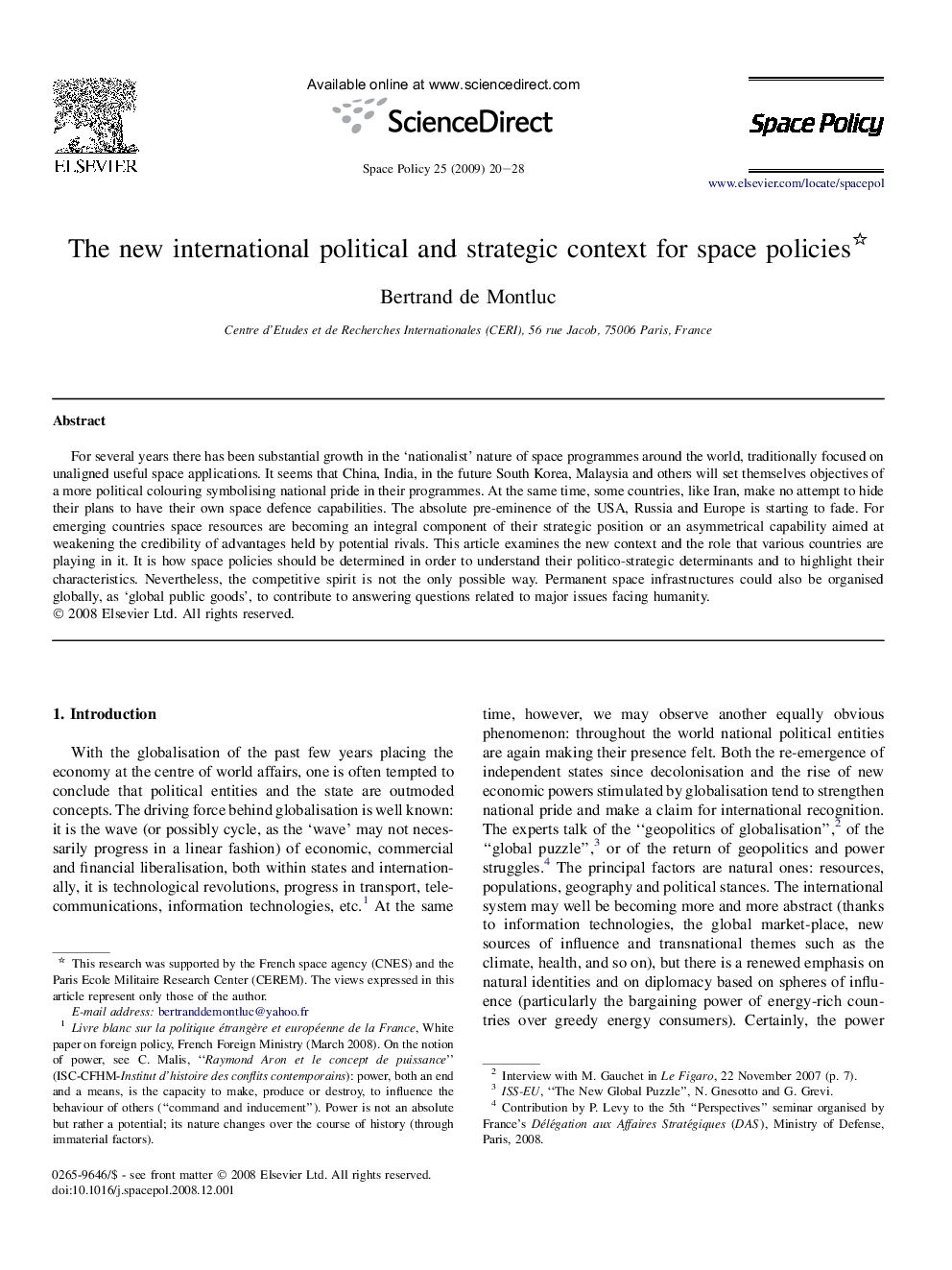| Article ID | Journal | Published Year | Pages | File Type |
|---|---|---|---|---|
| 1130938 | Space Policy | 2009 | 9 Pages |
Abstract
For several years there has been substantial growth in the 'nationalist' nature of space programmes around the world, traditionally focused on unaligned useful space applications. It seems that China, India, in the future South Korea, Malaysia and others will set themselves objectives of a more political colouring symbolising national pride in their programmes. At the same time, some countries, like Iran, make no attempt to hide their plans to have their own space defence capabilities. The absolute pre-eminence of the USA, Russia and Europe is starting to fade. For emerging countries space resources are becoming an integral component of their strategic position or an asymmetrical capability aimed at weakening the credibility of advantages held by potential rivals. This article examines the new context and the role that various countries are playing in it. It is how space policies should be determined in order to understand their politico-strategic determinants and to highlight their characteristics. Nevertheless, the competitive spirit is not the only possible way. Permanent space infrastructures could also be organised globally, as 'global public goods', to contribute to answering questions related to major issues facing humanity.
Related Topics
Social Sciences and Humanities
Social Sciences
Sociology and Political Science
Authors
Bertrand de Montluc,
